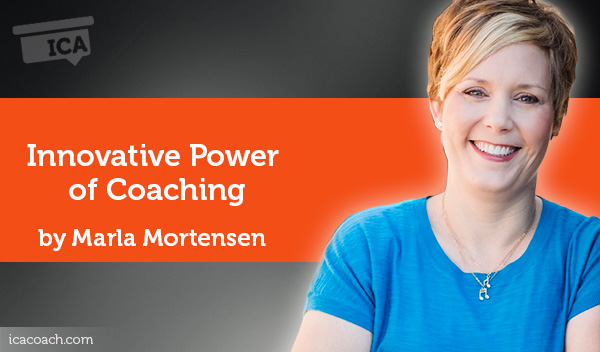Research Paper By Marla Mortensen
(Life and Business Transition Coach, UNITED STATES)
Every individual experiences life in a unique, non-replicable way. Yet, we often put ourselves into boxes, attempting to apply a formula that worked for a unique person who had a unique experience based on a unique set of circumstances. Similarly, experience in business is also unique and best practices only succeed to the extent that they remain relevant in a particular business environment. Instead of attempting to make our current circumstances and resources fit convention and best practices, we can break through the barriers we unintentionally place in front of ourselves. We can innovate.
Innovation is a buzzword appearing regularly throughout our news feeds and is often attributed to large progressive technology companies. Because of this perception, innovation may seem reserved for the awe-inspiring minds of creative geniuses. But, what is innovation? Innovation is simply creating something that exists differently then it had before. This reorganization of information or ideas exhibits the unique perspective of the creator. When studying the most innovative executives, researchers consistently found 5 discovery skills that can be practiced and developed by anyone. These skills are:
- The ability to connect the seemingly unrelated
- Asking questions that challenge conventional wisdom
- Observing
- Experimenting
- Networking
I propose that innovation is for anyone, practiced or not, who chooses to partner with a trained coach and engage in the innovative power of coaching. Let’s take a closer look at innovation and coaching.
Innovation occurs in two phases, the creation or ideation phase, and the implementation or application phase. Coaching, according to the first sentence in the ICF definition, is “partnering with clients in a thought-provoking and creative process”. From the very start we know that coaching is a creative process thus,fulfilling the 1st phase of innovation. However, do we really understand why or how coaching is a creative process? Questioning and observing, the 2nd and 3rd discovery skills, are present in the ICF Core Competencies. When a coach asks questions, makes observations, and repeats the client’s own words;the client gains awareness, changes perspectives, and makes new connections. The new connections equate to the 1st discovery skill, connecting the seemingly unrelated. The coaching process engages the innovative discovery skills for the client.
Case Example:
One of the fundamental beliefs in coaching expressed in the ICF definition, is that all clients are creative, resourceful, and the expert in his or her life. Watching this belief manifest during a coaching session is an incredible experience and learning opportunity. During one particular coaching session, my client established a goal to create a better system for prioritizing tasks. During the exploration process, my client asked if I had ever seen the commercial for Beach body food containers, marketed as a tool for managing meal portions throughout the day. This question,along with the containers, seemed out of context but peaked my curiosity for where my client was taking me. As a person with many responsibilities in diverse areas of life, my client created a prioritization system with metaphorical containers such as work,family, and continuing education. These containers controlled portions of time spent in each area, and tasks were prioritized per container instead of as a whole. My client connected the seemingly unrelated and reorganized information to exist in a new way reflecting the unique perspective of the creator.
In innovation, a new idea is only as good as it’s implementation. During our coaching session, my client created an action plan for implementing the new container idea as well as the accountability structure for using it consistently. Structures and accountability are ICF coaching competencies that assist a client in the implementation phase of the innovative process. Experimenting and networking, the 4th and 5th discovery skills are likely to take place as a client does the important work in between coaching sessions.
So what influence does the coaching process have on the innovative power of individuals and businesses? Clients may bring a variety of goals and problems to a session that will span business and personal life. Clients also bring their unique life experiences and skills to inspire creativity. A coach brings to the session the innovative process through questions, active listening, observations, and a space for exploration. This process brings about the reorganization of information into ideas that exist in a new way because of the unique touch of the client. The coach also brings the structure that assists the client in creating action and accountability for the successful implementation of an innovative idea. Innovation is not reserved for geniuses or individuals with highly developed innovative skills. The ability to innovate is available to all who are willing to partner with a coach and engage in the coaching process.
References
Dyer, Jeffrey H., Hal B. Gregersen, and Clayton M. Christensen. 2009. “The Innovator’s DNA.” Harvard Business Review, February: 60-67.
International Coach Federation. 2017a. “What is Coaching.” ICF FAQs. Accessed January 5, 2017. .
———. 2017b. “Core Competencies.” Individual Credentialing. Accessed February 3, 2017. .
